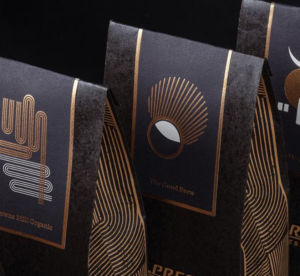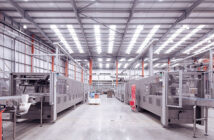
Big brands are committing to have 100% of their packaging recyclable, reusable, or compostable by 2025, and with 72% of New Zealanders concerned about the build-up of plastic in the environment, this move is being welcomed nationwide.
General manager of Pacrite Industries Victoria Dickinson says that when looking for a sustainable packaging solution, New Zealand companies also need to consider the end-of-life options for their products.
With a heightened focus on sustainability, there are solutions available such as compostable and recycle-ready, but there’s often a lack of infrastructure to take the solutions all the way through to the end-of-life.
“That’s where unique challenges come in,” says Dickinson.
“While product supply can be made to customers, the lack of appropriate downstream infrastructure as it stands can cause the end goal to fall short.”
Following the New Zealand Government’s announcement in July that they are investing $124 million in recycling infrastructure, a number of companies are focusing their efforts to align with the direction of these resources.
For example, last month saw the country’s first plant-based milk bottles land on grocery store shelves. Made from sugarcane that is ethically-sourced from Brazil, where it is made into HDPE plastic, the 2L Anchor Blue bottles have a low carbon footprint and are 100% recyclable.
Cost-effective, high-barrier sustainable films are one solution Pacrite has been placing development focus on. The company has been monitoring advancements in barrier coatings, new resins and biopolymers.
“At the moment, trials are being conducted using high-barrier single resin films for one of our large off-shore customers. Should that prove successful, the intention is to on-board that solution into the New Zealand market,” says Dickinson, with most of Pacrite’s clients having the flexibility to transition to single resin when their volumes reach the right point.
“Initially, a lot of what we’ve considered sustainable or environmentally-friendly didn’t offer the barrier properties that we needed to keep the food fresh and maintain the shelf life that’s needed for the whole distribution chain and export markets,” says Dickinson.
“We’re also developing packaging which is exported to the global market, so we’re trying to find something that’s globally accepted, a universal solution.”
While it is easier to take recyclable packaging through to its end-of-life in New Zealand, it is still possible to do the same with compostable products. A great example of this is the compostable bags that Pacrite developed for New Zealand coffee brand Allpress Espresso.
“We created a commercially compostable coffee bag for them, and they developed a collection programme designed to capture that packaging back again, so Allpress is controlling the product’s end-of-life. It’s a true solution,” says Dickinson.
“Something people may not realise is the time it takes to develop. It involved taste testing, as different materials resulted in different taste in coffee.
“We trialled films globally to find the right one – it’s not a one-size-fits-all solution.”
Global brand lead for Allpress Espresso Rob Lockyear says that they are currently trialling the 1kg and 3kg compostable bags.
“As soon as we have proved these can work in the market, we will be able to simply reverse the distribution system,” says Lockyear.
“Our customers would simply book a collection when they have filled a box and send them back to us for disposal. That means we can guarantee the waste stream for up to half a million bags.
“We are also exploring sending out self-addressed envelopes to our home subscription customers to do the same thing.”
With their plan to go fully-compostable, Allpress Espresso also isn’t confusing their customers – their takeaway cups and coffee bags can all be placed in the same bin and sent to the company’s composting partners and converted to soil for growing more food.
For companies pledging to offer recyclable, reusable and/or compostable packaging solutions, they may run into difficulty as each solution has different end-of-life handling.
“There is already a recycling culture in New Zealand – reduce, reuse, recycle – that’s been around for a long time,” says Dickinson.
“At the end of the day, packaging companies may all want to provide a solution that is not only best-suited to the product and the client, but also to include the end-of-life use or handling. That way there’s a better chance of seeing a product all the way through its lifecycle.”




























































































